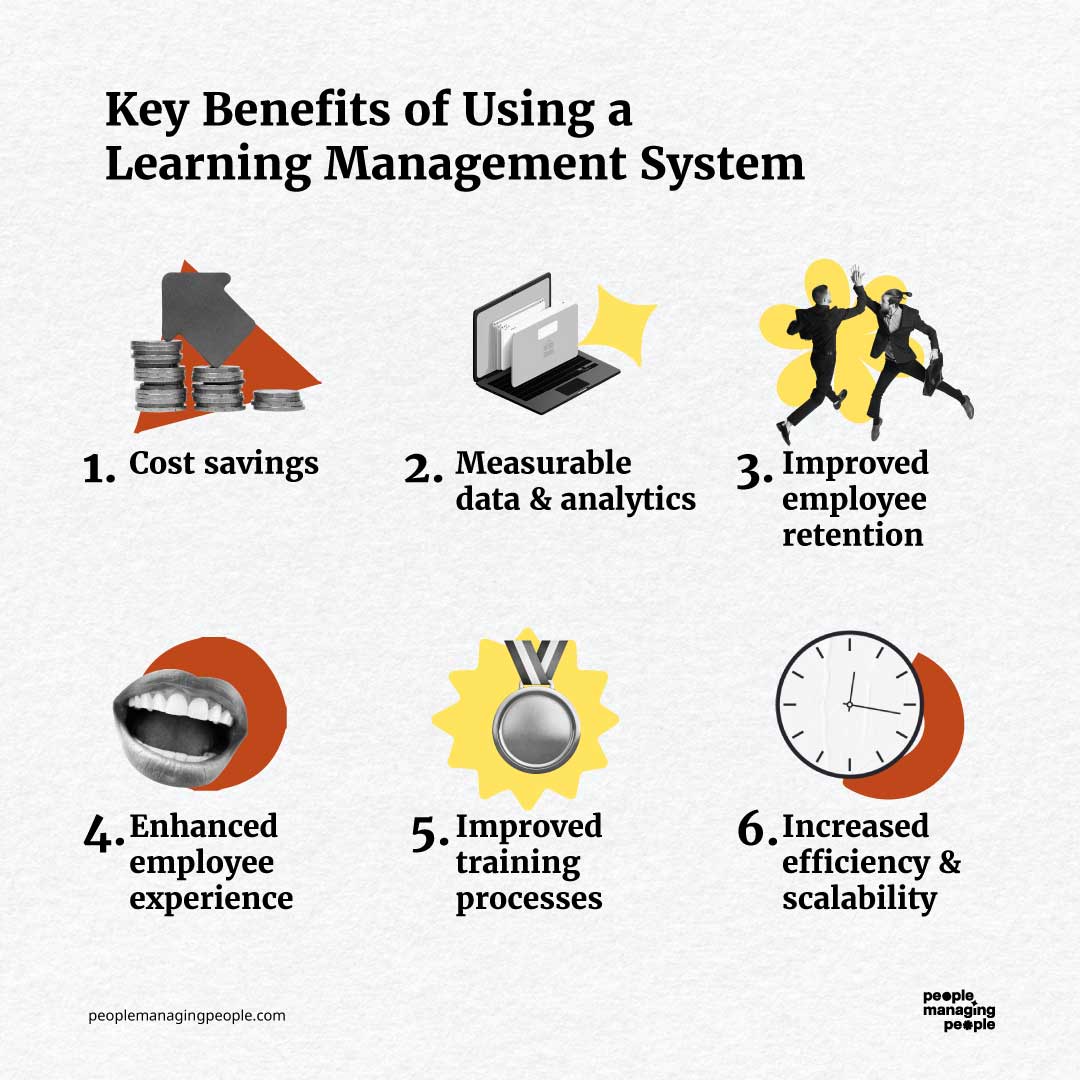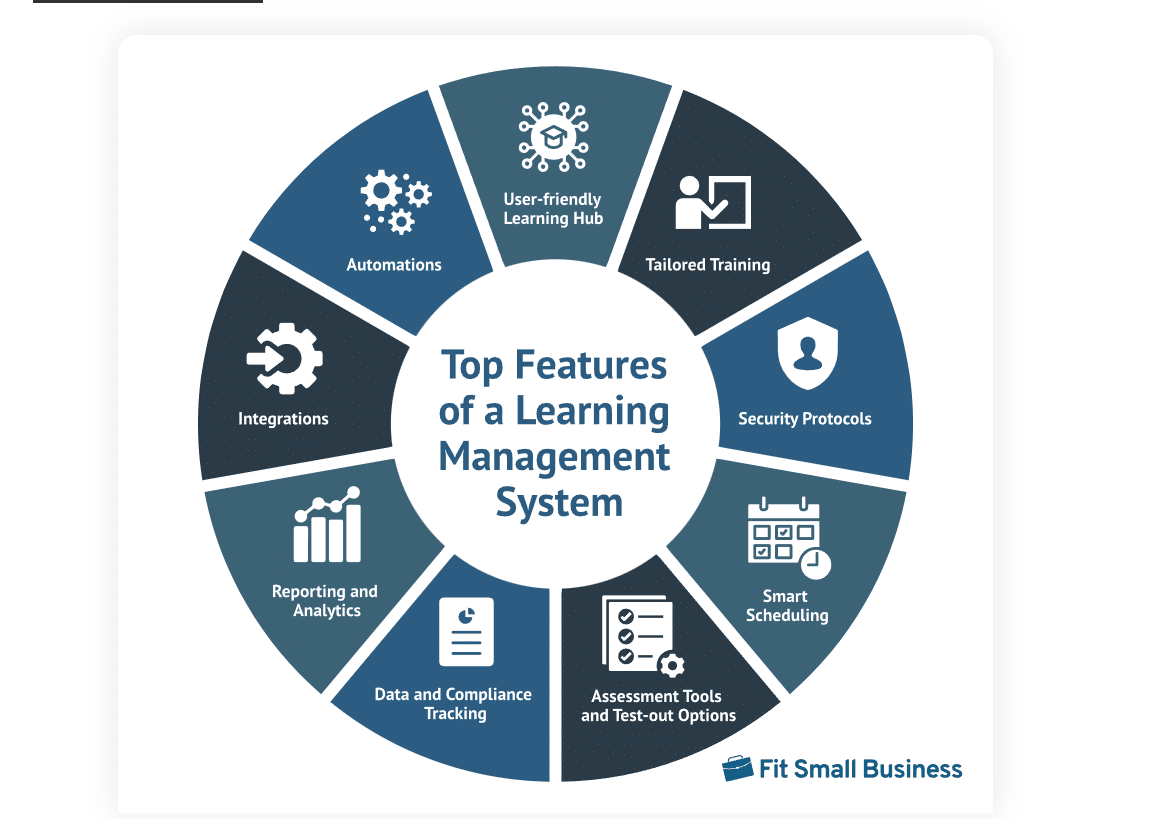Every Little Thing You Need to Find Out About Choosing a Learning Management System
Choosing an appropriate Discovering Monitoring System (LMS) is an important decision that can significantly affect the efficiency of your training programs. It entails a detailed understanding of both your business needs and the vital functions available in different LMS options.
Recognizing Discovering Management Equipment
A significant number of companies today are acknowledging the worth of Knowing Management Equipment (LMS) as important tools for efficient training and education and learning. An LMS is a software application made to facilitate the management, documents, monitoring, reporting, and delivery of academic training courses or training programs. By settling training efforts right into a centralized platform, companies can streamline procedures and enhance learning experiences.
LMS systems support different learning methods, including e-learning, combined knowing, and instructor-led training. Their flexibility makes them ideal for diverse markets, from company training to academic organizations. With making use of LMS, organizations can provide constant web content, making sure that students and staff members have accessibility to the necessary resources no matter place.
Additionally, LMS remedies frequently integrate functions that make it possible for analytics and reporting, allowing organizations to evaluate the efficiency of their training programs. This data-driven method encourages companies to make enlightened choices pertaining to curriculum modifications and resource allotment - Canvas Singapore. Ultimately, the fostering of an LMS can cause increased student interaction, improved retention prices, and enhanced total performance, declaring its condition as an essential component of modern-day instructional approaches
Trick Attributes to Take Into Consideration
When picking a Learning Monitoring System, companies must prioritize certain attributes that line up with their training goals and user needs. First and primary, user-friendliness is important; a system with an user-friendly interface can enhance student interaction and reduce the moment required for training administrators.
Another crucial feature is durable reporting and analytics capabilities, enabling organizations to track student development, conclusion prices, and assessment outcomes. This information is indispensable for refining training programs and demonstrating ROI.
In addition, mobile compatibility is progressively important as students like accessing content on numerous devices. A receptive LMS guarantees that training is available anytime, anywhere, thus increasing versatility.
Content administration capability is additionally crucial; the LMS should sustain various content kinds, including video clips, quizzes, and interactive modules, to provide to different discovering styles.

Evaluating Your Company's Needs
Identifying an organization's one-of-a-kind training requirements is vital for choosing the appropriate Knowing Administration System (LMS) To begin this evaluation, companies should perform an extensive evaluation of their current training landscape, including existing programs, individual demographics, and particular finding out objectives. This process aids highlight toughness and gaps in present offerings, guiding the choice of an LMS that straightens with organizational goals.
In enhancement, take into consideration the sorts of web content to be supplied, such as e-learning modules, compliance training, or mixed discovering experiences. Recognizing the preferred distribution techniques and discovering designs of workers is important for reliable training engagement. In addition, organizations ought to examine their technological framework, ensuring compatibility with the prospective LMS.
It is additionally important to entail vital stakeholders in this analysis procedure. Involving fitness instructors, IT personnel, and end-users can give important insights into their choices and demands. Furthermore, establish clear metrics for success, such as learner complete satisfaction and understanding retention, to help measure the effectiveness of the chosen LMS. By carefully examining these elements, i loved this organizations can make enlightened decisions, ensuring their chosen LMS effectively fulfills their training demands and improves overall performance.
Contrasting Different LMS Options
Numerous Discovering Management System (LMS) alternatives are readily available in the marketplace, each offering unique features and capabilities that deal with varied organizational needs. When contrasting LMS alternatives, organizations need to think about several crucial variables. First, the customer interface and experience are critical; an instinctive design can substantially impact individual engagement and adoption prices.
2nd, evaluate the scalability of the LMS. As your organization expands, the system needs to fit an enhancing variety of customers and content without jeopardizing efficiency. Third, assimilation hop over to here capabilities are crucial; the LMS ought to effortlessly attach with existing devices, such as HR systems, CRM platforms, and material collections, to boost capability.
Moreover, consider the personalization alternatives offered. An LMS that permits customized branding, course creation, and reporting can much better line up with certain business objectives. In addition, rates versions differ widely, so it is vital to examine the overall expense of ownership, including licensing charges, maintenance, and assistance.

Execution and Assistance Strategies
Successfully implementing a Knowing Administration System (LMS) requires a calculated technique that incorporates comprehensive planning and continuous support. Begin by establishing clear objectives that align with your organization's instructional objectives. Involve crucial stakeholders and develop a specialized application team to promote interaction and cooperation throughout the procedure.
Begin with a pilot program including a smaller customer group, allowing for real-time responses and modifications. Provide extensive training to guarantee customers are comfortable with the LMS functionalities and attributes.
Post-implementation support is similarly important. Establish a robust support group that consists of helpdesk resources, customer guidebooks, and training sessions. On a regular basis gather responses from users to determine locations for enhancement. In addition, take into consideration producing an area forum for customers to share experiences and services.
Conclusion
In final thought, selecting an great site appropriate Learning Monitoring System requires an extensive examination of readily available choices and business demands. By thoroughly considering these factors, companies can ensure effective training distribution and eventually achieve their educational purposes with the selected LMS.
A substantial number of companies today are identifying the value of Knowing Management Equipment (LMS) as crucial tools for efficient training and education and learning.Furthermore, LMS solutions frequently integrate features that make it possible for analytics and reporting, permitting organizations to assess the performance of their training programs.Determining an organization's one-of-a-kind training demands is crucial for choosing the right Discovering Management System (LMS) By diligently examining these factors, companies can make enlightened decisions, guaranteeing their chosen LMS properly meets their training demands and enhances general efficiency.
By carefully thinking about these variables, organizations can make certain effective training shipment and inevitably achieve their academic purposes via the selected LMS.